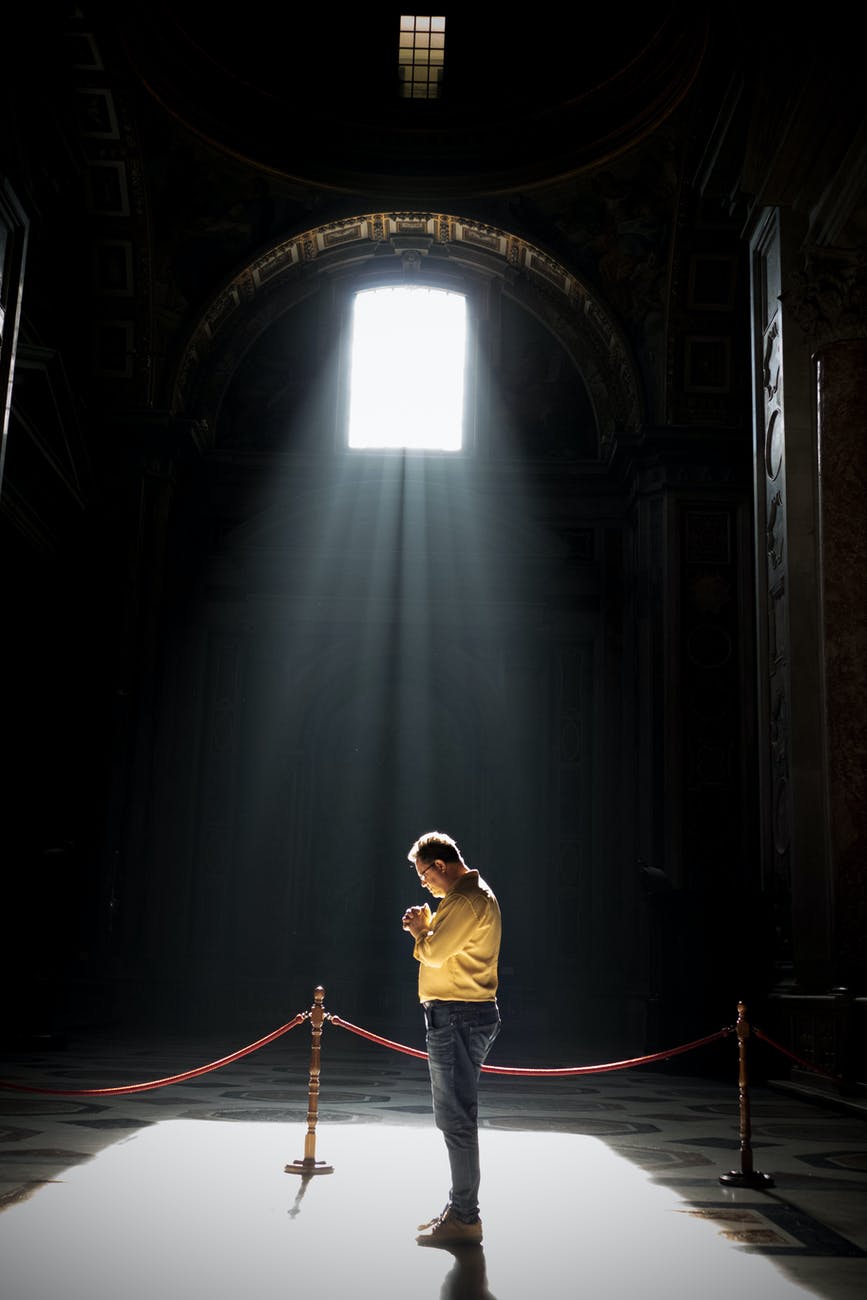Audio accessibility for this blog post is powered by Microsoft Text-to-Speech technology. These recordings are provided for personal, non-commercial educational use only.
 Peace of Christ, Mr.Minton, hope you enjoy probabilities. I was rereading our last interaction and noticed how I said Yahweh is more probable than phoenixes purely through a more massive amount of experiences. So I chewed on this a bit and have attempted to make an argument from Massive experiences for the truth of Christianity. Here it is:
Peace of Christ, Mr.Minton, hope you enjoy probabilities. I was rereading our last interaction and noticed how I said Yahweh is more probable than phoenixes purely through a more massive amount of experiences. So I chewed on this a bit and have attempted to make an argument from Massive experiences for the truth of Christianity. Here it is:
If I remember correctly, you must repeat an operation thrice to establish it as a pattern in Maths.
Furthermore, If I remember correctly, to calculate probabilities of independent events you multiply the decimal/fraction together. For example, the odds of getting two heads in a row would be: 0.5X0.5= 0.25. Let’s apply this to miracles/experiences of the Christian God.
First, let’s determine the probability that any given interaction is Veridical or Nonveridical. An interaction is any alleged interaction with the Christian God, whether that be through experiences or miracles or what have you. Veridical is being defined as “actually an interaction with the God of Christainity”. Nonveridical meaning that “not an interaction with the God of Christainity”. All Natural and alternative supernatural explanations fall under Nonveridical. Let’s set the odds of a Nonveridical interaction at 0.9 or 9/10 or 90%.
Input: Operation: Output:
0.9 X0.9 0.81
0.81 X0.9 0.729
0.729 X0.9 0.6561
So if the odds of a Nonveridical interaction are set to 0.9, the odds that 4 interactions with the Christian God are all Nonveridical are roughly 66%. It would only take a couple more interactions to “overwhelm” the Nonveridcal interactions and show that at least one interaction was veridical. Perhaps 10 more?
Now, let’s set the odds of a Nonveridical interaction at 0.99 or 99/100 0r 99%
Input: Operation: Output:
0.99 X0.99 0.9801
0.9801 X0.99 0.970299
0.970299 X0.99 0.96059601
So now with 4 interactions, the probability that all are Nonveridical is roughly 96%. However, with say, 100 more interactions that probability would be brought much lower.
Finally, let’s seth the odds of a Nonveridical interaction at 0.999 or 999/1000 or 99%
Input: Operation: Output:
0.999 X0.99 0.998001
0.998001 X0.99 0.997002999
0.997002999 X0.99 0.996005996
So now with 4 interactions, the probability that all are Nonveridcal is roughly 99.6%. Quite steep. However, with a thousand interactions this probability would presumably fall to a point where at least one is Veridical.
If even a single interaction with the God of Christainity is veridical, then Christainity seems to be verified. Or at least the existence of a supernatural being that reveals itself to Christians and answers their call. The thing is, there are many many alleged interactions with the God of Christainity. Let’s set it at a total of 1 billion interactions throughout history. To make sure that not a single one of these interactions is veridical, the skeptic must raise their belief in the truth of Naturalism/ Nonveridical explanations a great deal. If this argument is correct then it forces the skeptic to raise their belief in Naturalism to absurd lengths where they have a certainty in Naturalism beyond that of all other beliefs. So my question is, what do you think of this argument? Have I gotten my math wrong? Is there a fallacy somewhere in there? Has this argument already been used and discarded?
————————————————-
 Well, first I never said that Yahweh is more probable than phonixes due to a “more massive amount of experiences.” In the blog post you’re referring to, “Q&A: How Do We Know Someone Other Than God Didn’t Raise Jesus?”, I said that we had good arguments for God’s existence, such as The Kalam, Fine-Tuning, Moral, and Ontological Arguments, and when you look at the God these arguments show exist via the identity argument, you find that two of them are only compatible with the God of the Abrahamic religions (and Deism), and the other two are only compatible with Nicene Christianity. By contrast, we have NO good arguments for the existence of phoenixes, so when weighing the hypothesis “God raised Jesus from the dead” and “Phoenix feathers caused Jesus to come back to life”, it just makes more sense to infer the former rather than the latter because the former is an event attributed to a causal agent whom we already know exists. I said nothing of experiences of God, so I’m not sure where you’re getting that from.
Well, first I never said that Yahweh is more probable than phonixes due to a “more massive amount of experiences.” In the blog post you’re referring to, “Q&A: How Do We Know Someone Other Than God Didn’t Raise Jesus?”, I said that we had good arguments for God’s existence, such as The Kalam, Fine-Tuning, Moral, and Ontological Arguments, and when you look at the God these arguments show exist via the identity argument, you find that two of them are only compatible with the God of the Abrahamic religions (and Deism), and the other two are only compatible with Nicene Christianity. By contrast, we have NO good arguments for the existence of phoenixes, so when weighing the hypothesis “God raised Jesus from the dead” and “Phoenix feathers caused Jesus to come back to life”, it just makes more sense to infer the former rather than the latter because the former is an event attributed to a causal agent whom we already know exists. I said nothing of experiences of God, so I’m not sure where you’re getting that from. As for your argument, what you just presented to me is called The Argument From Religious Experiences. The name is often mistaken to mean “I had an experience of God, so God exists!” But the actual argument is that people throughout history all over the world from the dawn of humanity to today have had so many encounters with supernatural entities that the odds that they’re all just “bouts of indigestion”, hallucinations, dreams, etc. becomes unlikely, just due to the sheer number (and often similarities) of the occurrences.
I don’t think this argument gets you to Christianity though, because, from what I can tell, you’re only taking experiences of the CHRISTIAN God into account. What about Muslim religious experiences, or the various experiences of the “burning in the bosom” that Mormons so often tout as evidence that Mormonism is true? Could not similar calculations be run with these? It would seem to me that, regarding which particular religion is true, when all of the experiences are taken into calculation, you’d just end up with a wash.
Now, that doesn’t mean the argument is totally worthless. I think it does give us a good grounds to think that a bare boned supernaturalist worldview is true, and that is enough to refute philosophical naturalism. But it does it get you to Jesus? I’m skeptical that it does.
One more interesting thing to point out is that this is without a doubt a refutation to David Hume who made the sweeping claim that there is uniform testimony against miracles. Hume should have gotten out more. Like you said, he would have to say that every single claim to a miracle or some other supernatural phenomena is false. And Hume could only do that by either (A) presupposing naturalism is true, which would be circular reasoning, or (B) examine every single case to rule them all out (a gargantuan task).
So as it stands, I don’t think the argument is totally fallacious, But your conclusion is overstated.

If you have any questions about Christian theology or apologetics, send Mr. Minton an E-mail at CerebralFaith@Gmail.com. It doesn’t matter whether you’re a Christian or Non-Christian, whether your question is about doubts you’re having or about something you read in The Bible that confused you. Send your question in, whatever it may be, and Mr. Minton will respond in a blog post just like this one.
Share this:
- Share on Facebook (Opens in new window) Facebook
- Share on X (Opens in new window) X
- Print (Opens in new window) Print
- Email a link to a friend (Opens in new window) Email
- Share on Pinterest (Opens in new window) Pinterest
- Share on Reddit (Opens in new window) Reddit
- Share on LinkedIn (Opens in new window) LinkedIn
- Share on Tumblr (Opens in new window) Tumblr
Discover more from Cerebral Faith
Subscribe to get the latest posts sent to your email.





<>
– My Initial Email
<>
– Mr. Minton’s Response
Yes, that is true Mr. Minton. You did not say that phoenixes are more likely due to a more massive amount of experiences. I was the one who said that.
<>
– My Initial Email
Anyway, it’s good to know that I’ve presented an already existing argument. Maybe one day I’ll think of something original.
Regarding other religions. I think it depends. If the number of interactions in Islam (for example) is below that of Christianity’s by a significant margin, then a skeptic could conceivably raise their skepticism to disregard them. But if Christianity’s number of interactions is much higher than Islam’s, so a skeptic could not reasonably raise their skepticism. That would give us a preference of Christianity over Islam. This could be repeated for every religion and show that Christianity is the preferred supernatural reality.
However, it is a fool’s errand to try and find the amount of interactions for every religion. Like fighting a massive army with 300 people.
But thanks again for your response. Much appreciated Mr. Minton.
Well, hey, feel proud of yourself that you thought of it independently. I came up with the theodicy popularly known as skeptical theism long before I read about it in Christian Apologetics books. 😀
.
And yeah, calculating the number of experiences per religious tradition would be an impossible task. Especially since some people may be having even more as we speak!